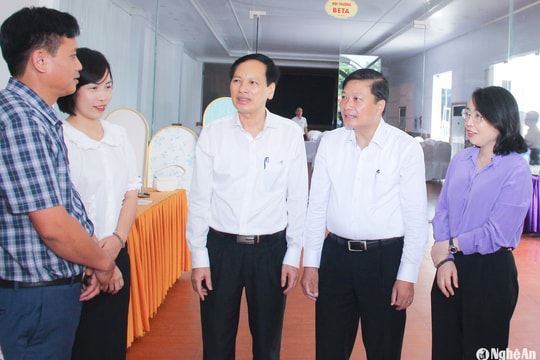Continue to improve the effectiveness of mass mobilization work of local authorities in the new period
Mass mobilization work is the responsibility of the entire political system, of all cadres, party members, civil servants, union members, members of mass organizations, officers and soldiers of the armed forces. In which, the Party leads, the government organizes, and the Front and mass organizations act as staff and core.
Local governments operate under the “Law on Organization of Local Government” No. 77/2015/QH13 dated June 19, 2015 and the “Law on Amending and Supplementing a Number of Articles of the Law on Organization of Government and the Law on Organization of Local Government” No. 47/2019/QH14 dated December 12, 2019. Local government levels include People's Councils and People's Committees organized in administrative units of the Socialist Republic of Vietnam. According to the provisions of the law, provincial and centrally run city units are collectively referred to as provincial level; districts, urban districts, towns, provincial cities, and centrally run cities are collectively referred to as district level; communes, wards, and towns are collectively referred to as commune level and special administrative-economic units.
Why do local authorities have to do mass mobilization work?
Regarding theoretical basis, VI Lenin pointed out: "Lively and creative socialism is the cause of the masses themselves."(1)In the article “Mass Mobilization” published on October 15, 1949, President Ho Chi Minh wrote: “Our country is a democratic country. All benefits are for the people; All powers belong to the people. The work of innovation and construction is the responsibility of the people. The cause of resistance and nation building is the work of the people. The government from the commune to the Central Government is elected by the people. The organizations from the Central to the commune are organized by the people. In short, power and strength are in the people.”(2)Uncle Ho advised: “The work of the Government must aim at the sole purpose of seeking freedom and happiness for all people. Therefore, the People's Government must always put the people's interests above all else. Whatever is beneficial to the people must be done. Whatever is harmful to the people must be avoided.”(3)“The duty of our government and our organizations is to serve the people. That means to be servants of the people.”(4)He also affirmed: "Democratic government means government owned by the people"(5).
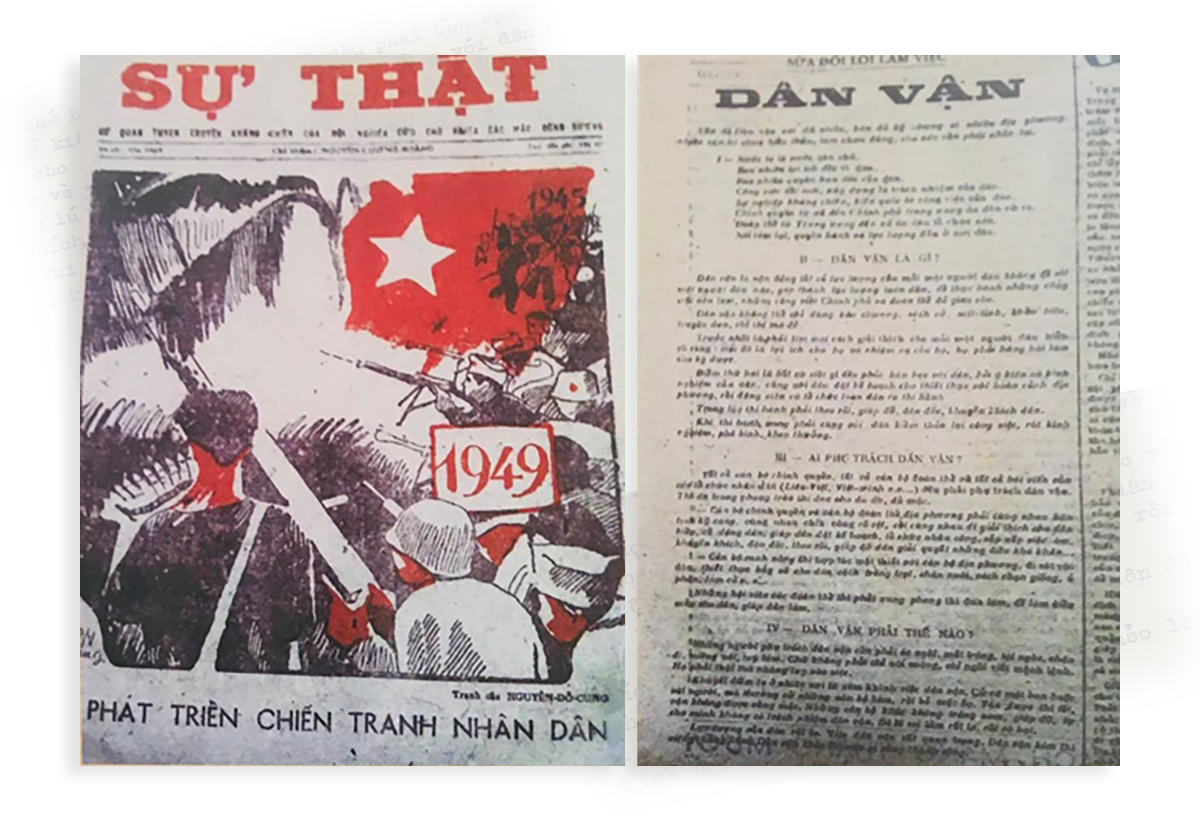
On the basis of Marxism-Leninism, Ho Chi Minh's thought on mass mobilization, the Party's platform for national construction (2013) clearly states: "Our State is a socialist rule-of-law state of the people, by the people, for the people. All State power belongs to the people..., the State serves the people, is closely attached to the people, fully exercises democratic rights with the people..." Resolution No. 25-NQ/TW dated June 3, 2013 of the Central Executive Committee (11th tenure) on "Strengthening and innovating the Party's leadership over mass mobilization work in the new situation" presents a very comprehensive and profound viewpoint: "Mass mobilization work is the responsibility of the entire political system, of all cadres, party members, civil servants, union members, members of people's organizations, officers and soldiers of the armed forces. In which, the Party leads, the government organizes implementation, the Front and mass organizations advise and are the core". This viewpoint of the Party has clearly stated that leading mass mobilization work is the responsibility of the Party committee, organizing and implementing mass mobilization work is the responsibility of the government, both advising the Party committee and being the core in mobilizing and gathering the people is the responsibility of the Fatherland Front and socio-political organizations at all levels. The document of the 13th National Party Congress also clearly stated: “The people are the center and the subject of the renovation process of building and defending the Fatherland; all guidelines and policies must truly originate from the requirements, aspirations, rights and legitimate and legitimate interests of the people, strengthen close relations with the people, rely on the people to build the Party, take the happiness and prosperity of the people as the goal to strive for, consolidate and strengthen the people's trust in the Party, the State, and the socialist regime…”(6).
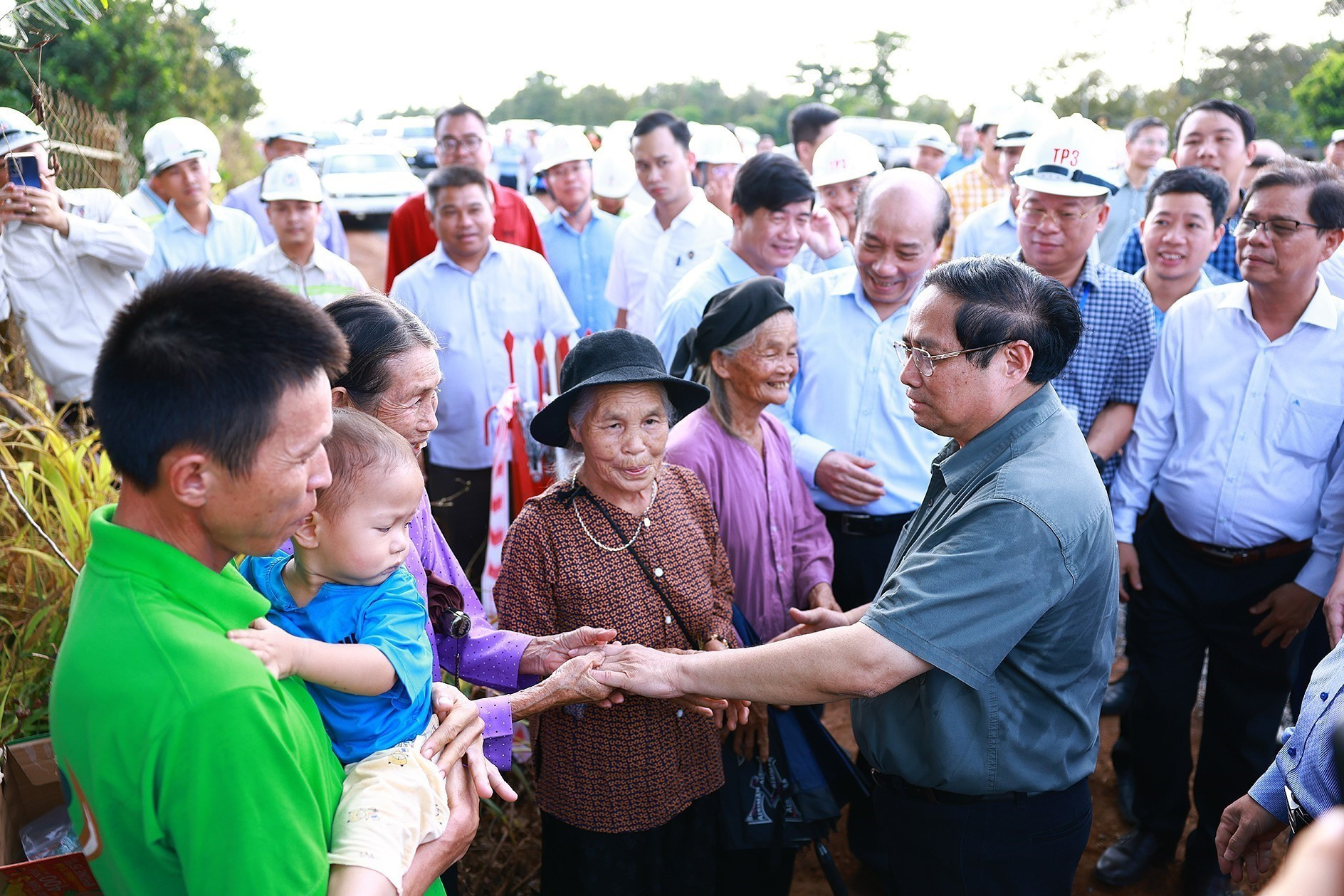
Ho Chi Minh's thought and our Party's viewpoint on mass mobilization work have been institutionalized by the State in the content of the 2013 Constitution of the Socialist Republic of Vietnam (Article 2): "The Socialist Republic of Vietnam is of the People, by the People, for the People". "The Socialist Republic of Vietnam is owned by the People, all power belongs to the People". One of the tasks and powers of local governments at all levels (Articles 17, 24, 31 of the Law on Organization of Local Government No. 77/2015/QH13 dated June 19, 2015) also clearly states: "Decide and organize the implementation of measures to promote the people's mastery, mobilize social resources to build and develop the economy - society, ensure national defense and security in the area".
In terms of practical basis, all government activities are related to the people, especially programs and projects on socio-economic development, national defense, security, etc. On the contrary, all administrative relationships of the people are linked to the government, through government agencies such as birth registration, household registration, land purchase and sale, housing construction, study procedures, going abroad, etc.
With the above theoretical and practical basis, all levels of government, all cadres, civil servants and public employees must do mass mobilization work.
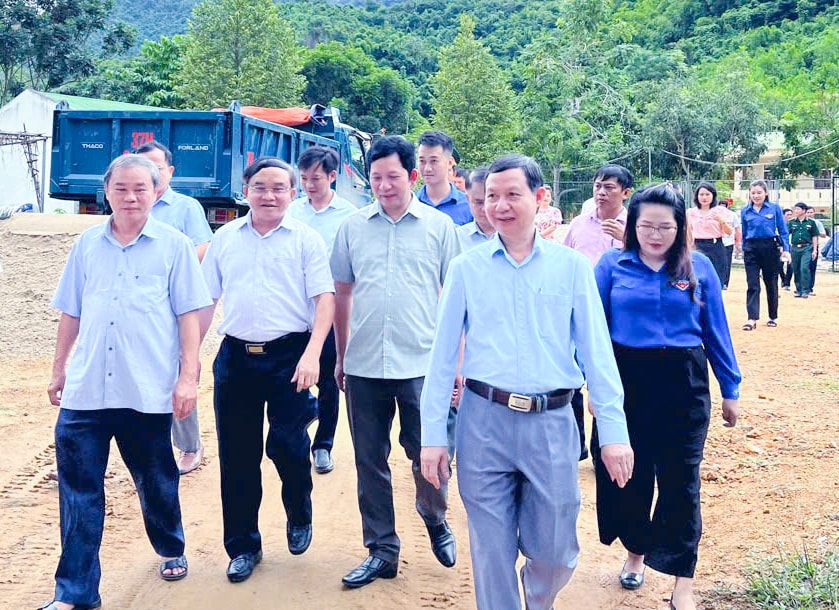
Responsibility for mass mobilization work of authorities at all levels in the new period
The Politburo issued an important document on mass mobilization work, Decision No. 23-QD/TW dated July 30, 2021. Article 14 of Decision No. 23-QD/TW very specifically states the responsibilities of authorities at all levels regarding mass mobilization work as follows:
1. Develop and organize the implementation of specific programs and plans to deploy the Party's guidelines and policies, and the State's policies and laws related to mass mobilization work.
To fulfill this responsibility, authorities at all levels need to do well a number of key contents.
1.1. Directing the dissemination and implementation of resolutions, directives, conclusions and decisions of the Central Committee, Politburo, Secretariat and Party committees on mass mobilization work among state officials, civil servants and public employees.
Mass mobilization is a field that Uncle Ho loved and our Party paid special attention to, so many resolutions were issued for leadership and direction, such as resolutions on promoting people's mastery; on ethnic and religious affairs; on promoting the strength of national solidarity; on intellectuals, the working class, farmers, youth, women, veterans, trade unions, businessmen, overseas Vietnamese, etc.
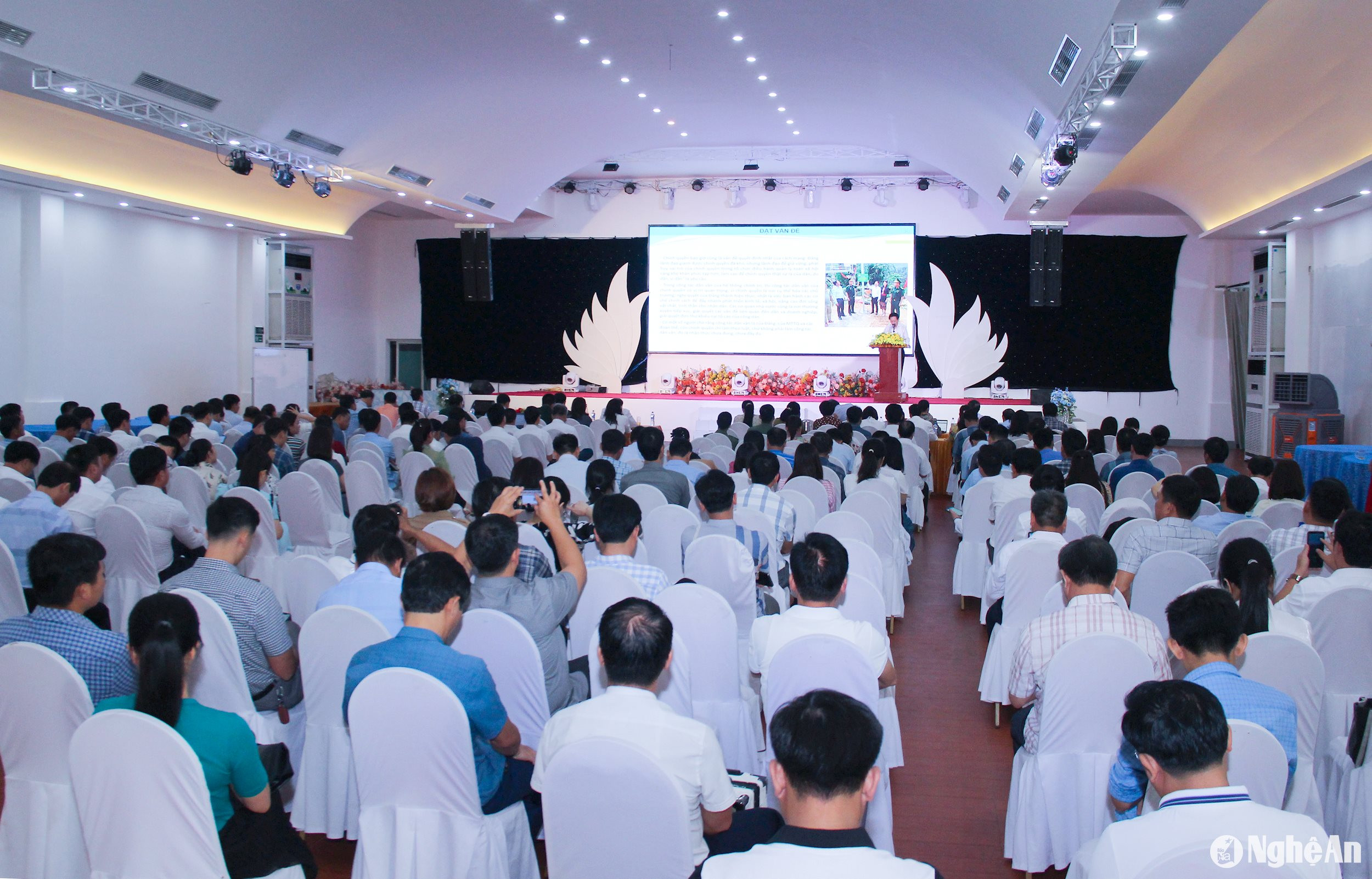
1.2. Directing the dissemination and study of State legal documents related to mass mobilization work among State officials, civil servants and public employees.
According to regulations, every citizen must live and work according to the Constitution and the law. The National Assembly has issued many legal documents related to mass mobilization work, including a number of laws that have a great impact on the people such as the Labor Law, the Education Law, the Insurance Law, the Law on Complaints and Denunciations, the Land Law, the Housing Law, the Law on Referendums, the Law on Grassroots Democracy Implementation, etc. Therefore, authorities at all levels need to choose creative forms and methods for each civil servant, public employee and the people to study, thoroughly understand and change their awareness of law compliance.
1.3. Based on the Party's Resolutions, the Politburo's Decisions, the Central Secretariat's Decisions, and legal documents related to mass mobilization work, State agencies at all levels must develop programs and plans for implementation.
Based on the actual situation of each locality to apply creativity in building programs and implementation plans. Considering what mechanisms and policies are needed under the authority of the People's Council, the People's Committee must have a document submitted to the People's Council for decision. According to the Central regulations, the implementation of the resolution must be inspected annually, with a preliminary review every 5 years and a final review every 10 years. For newly issued legal documents, authorities at all levels must both propagate so that cadres, civil servants, public employees and people understand and regularly check compliance. Periodically, the implementation results must be summarized and evaluated. The program or implementation plan must be specific, highly feasible, and clearly assign responsibilities to State agencies for both content and completion time.
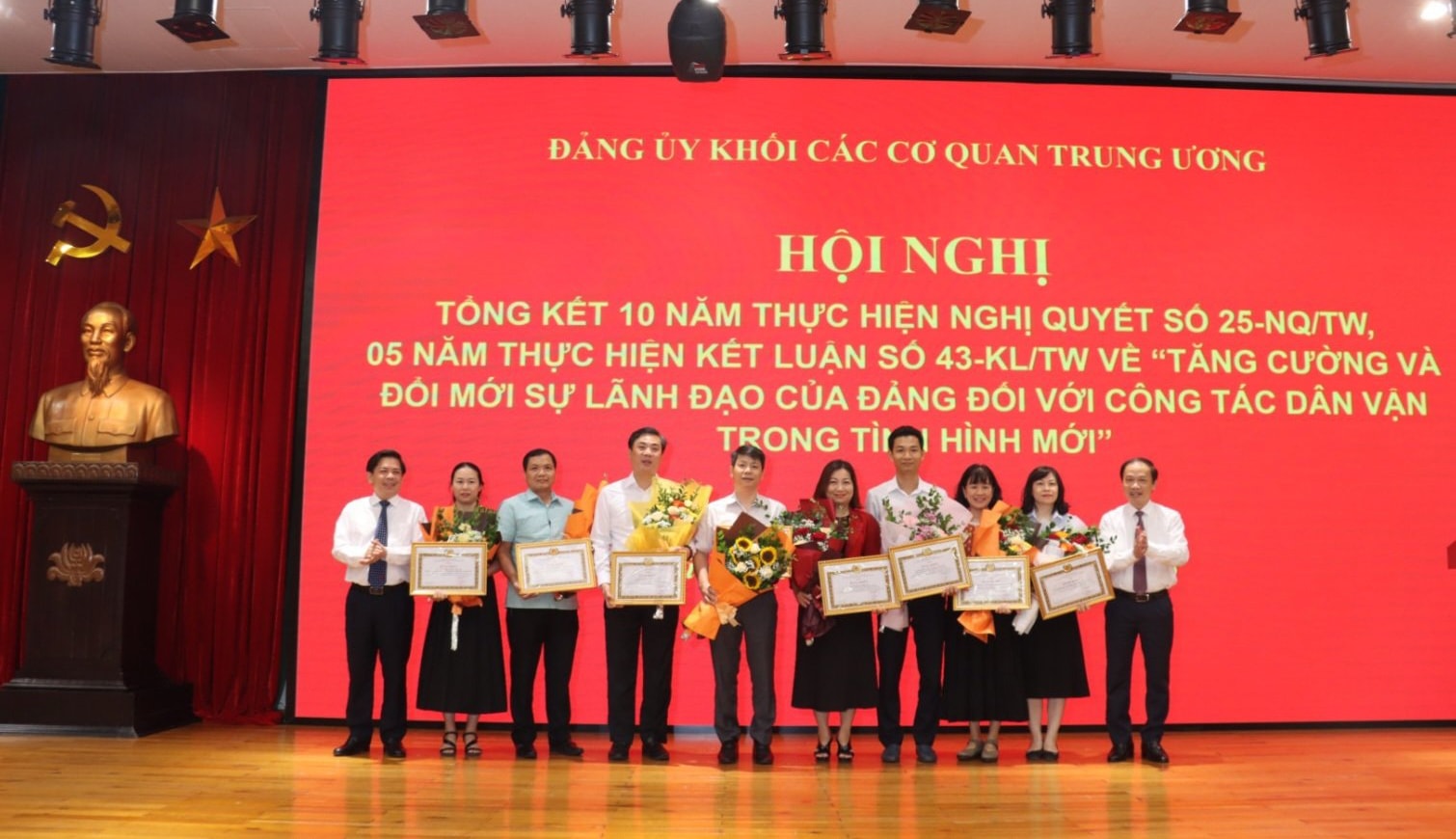
2. Implement administrative reforms, publicize and make transparent policies, programs, projects on socio-economic development, budget and State resources.
Implementing the spirit of the Resolution of the 13th National Party Congress: "Building a State administration that serves the people, is democratic, rule of law, professional, modern, clean, strong, open and transparent". Continue to perfect the organization of local governments in accordance with rural, urban, island, administrative and special economic units according to the law. Promote the construction of e-government, strengthen the connection and regular exchange of information between relevant State agencies, between the government and the people and businesses. The government is responsible for publicizing and disseminating to each citizen the policies and guidelines of the Party and the State, the mechanisms and policies of the People's Councils of provinces and cities, socio-economic development programs and projects, and the State budget of provinces, cities, districts and counties. Before approving major planning, plans, and projects closely related to the majority of people, the government needs to organize to collect opinions and contributions from the people, especially experts and scientists (through seminars, discussions, and publicizing on the media so that people can contribute and build). After major programs and projects have been approved by competent authorities, they should be widely announced on the media so that people know, comply with, and participate in monitoring the implementation process. At the same time, the government is responsible for organizing and mobilizing people to effectively implement those policies, programs, planning projects, and plans, etc.
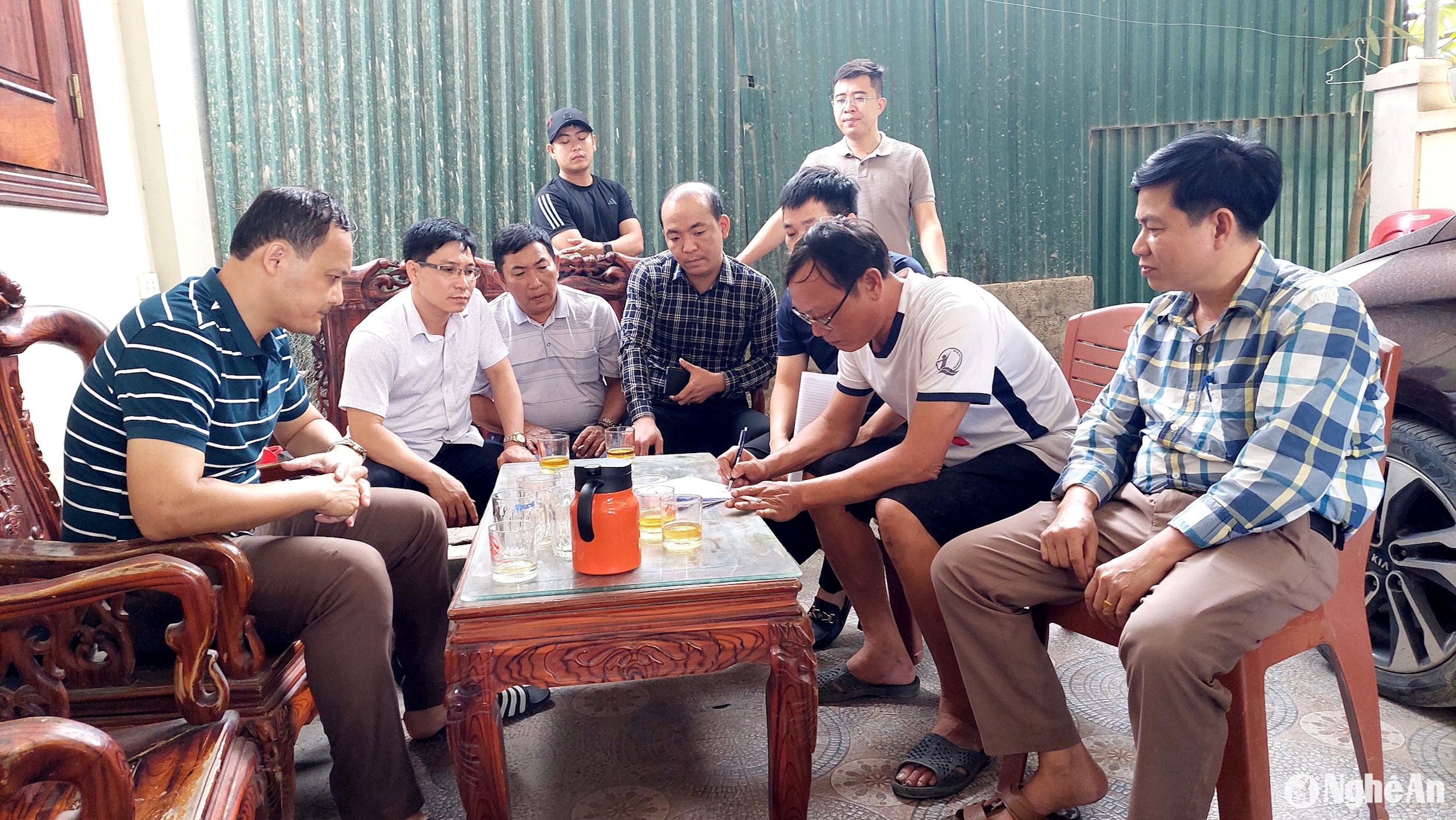
3. Effectively organize the implementation of the Law on Grassroots Democracy, No. 10/2022/QH15, dated November 10, 2022 of the National Assembly and Decree No. 59/2023/ND-CP, dated August 14, 2023 of the Government.
The law has 6 chapters and 91 specific articles. The Law on Implementing Democracy at the Grassroots Level is a new step in the development of democracy in our country. The "Law on Implementing Democracy at the Grassroots Level" replaces the ordinances and decrees on the regulations on democracy at the grassroots level that were issued previously. The Party and the Government have issued regulations for the heads of Party committees and authorities to periodically or suddenly organize meetings with citizens, dialogue with citizens and direct the settlement of complaints, denunciations, petitions, and urgent issues of the people (such as life, employment, compensation for site clearance, resettlement organization, environment, traffic safety, drugs, etc.) according to the provisions of law. Depending on the specific conditions of each region, authorities at all levels have many forms and methods of organization to collect many opinions and contributions from agencies and organizations (such as the Fatherland Front, socio-political organizations, professional associations, etc.) and individuals, especially experts, scientists, etc. In reality, wherever State agencies, especially the government, well implement the democratic regulations at the grassroots level, well organize citizen reception, dialogue with citizens, promptly resolve citizens' petitions and concerns according to the law, there is political stability, socio-economic development, and the close relationship between the people and Party organizations and the government is consolidated and strengthened.
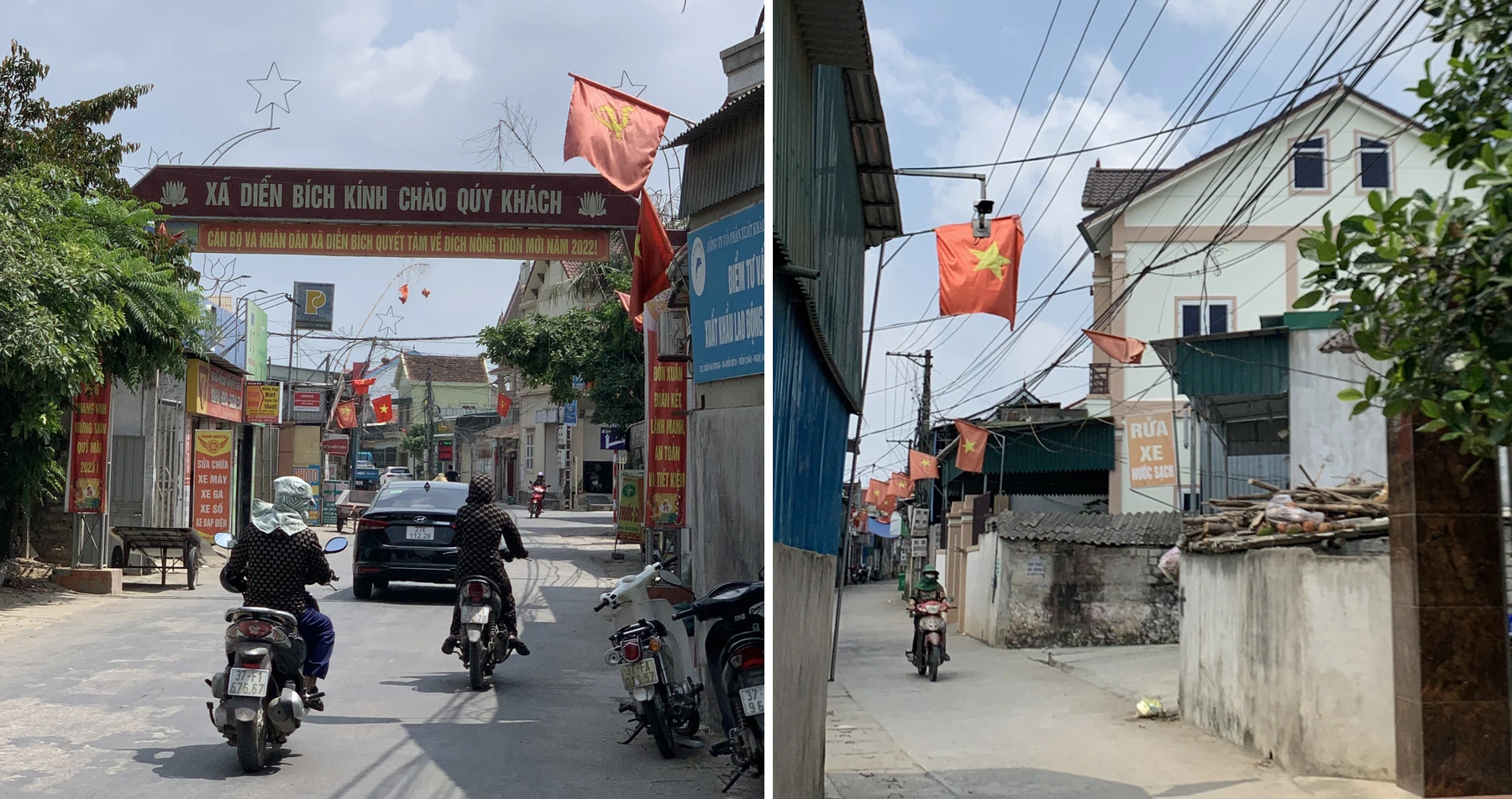
4. State agencies at all levels pay attention to directing the improvement of public ethics, sense of responsibility, and awareness of serving the people of cadres, civil servants, and public employees; organize inspections and examinations of the implementation of State policies and laws, especially issues related to people's lives; handle corruption, negativity, and acts that infringe upon the rights and legitimate interests of citizens within their authority.
This is a very important responsibility and task of the authorities at all levels in carrying out mass mobilization work. The cadres, civil servants and public employees of the authorities at all levels are the ones who work directly every day, resolving administrative relations between the government and the people such as household registration, land registration, construction, house architecture, tax payment, production registration, business, education, medical treatment, going abroad, etc. If the cadres, civil servants and public employees are educated and trained in good public ethics by the authorities at all levels, the prestige of the authorities at all levels with the people and businesses will be enhanced. Organizing regular inspections and checks is the State management responsibility of the authorities at all levels, so if the authorities organize well and effectively, the implementation of policies and laws of all levels, sectors and of each citizen will be better, especially issues related to people's lives such as freedom, democracy, rights to education, housing, etc. will be guaranteed. Through inspection and examination work, relevant State agencies and authorities at all levels must also actively direct the work of preventing and combating corruption, negativity, and acts that infringe upon citizens' legitimate rights and interests within their authority, contributing significantly to strengthening people's trust in authorities at all levels.

5. Coordinate with the Mass Mobilization Committee, the Vietnam Fatherland Front, and socio-political organizations at the same level to advise and carry out mass mobilization work. Periodically have a working program with the Vietnam Fatherland Front and socio-political organizations at the same level on the people's situation and mass mobilization work.
To lay the foundation for coordination, at the beginning of each term of the Party Committee or People's Committee (5 years), the authorities at the same level should discuss, develop and sign a program for coordinating mass mobilization work with the Party Committee's Mass Mobilization Committee and with the Fatherland Front and its member organizations. Based on the content of the coordination program, organize implementation and annually review and evaluate the results achieved, those not yet achieved, and draw lessons for the following year. After 5 years, a summary and close evaluation should be organized from the grassroots up and rewards should be given to units that perform well and criticism should be given to units that do not perform well. Annually, the Chairman of the People's Committee should work directly with the Vietnam Fatherland Front and its member organizations (should be at the end of the fourth quarter of each year). Grasping the people's situation is a very important task of each locality. People's Committees at all levels need to assign offices to synthesize information provided and reflected by units for timely handling and resolution, especially people's concerns and issues that are likely to become "hot spots" (overcoming the situation where some places have a lack of close, formal, and ineffective coordination).
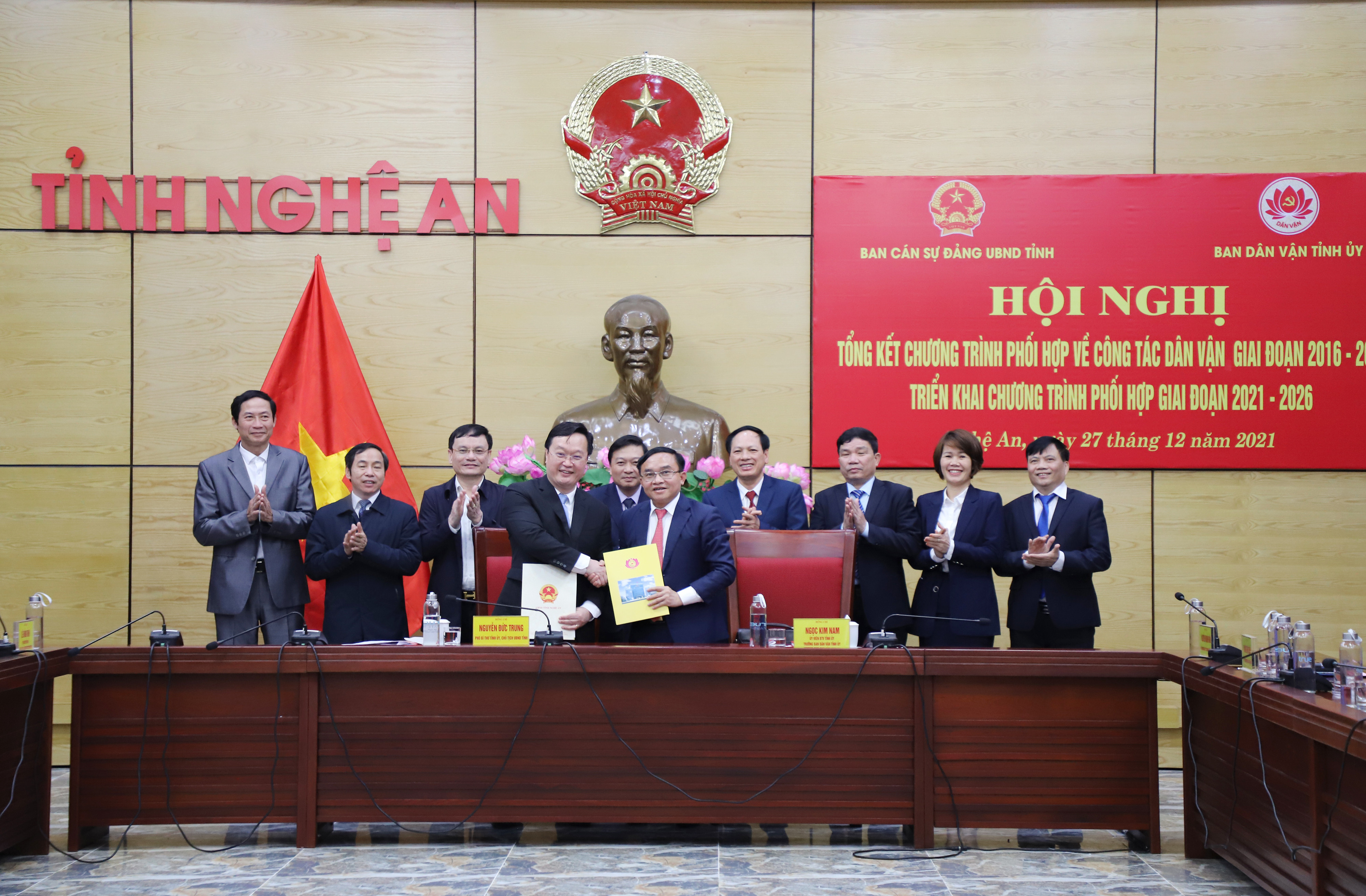
6. Assign the Chairman of the People's Committee to be in charge of mass mobilization work and direct the implementation of grassroots democracy regulations, and direct affiliated agencies and units to assign a leader to be in charge of mass mobilization work.
This is a regulation of the Politburo, so State agencies and authorities at all levels must fully comply. The People's Committees at all levels request the authorities at the same level to have a specific assignment decision by the Chairman of the People's Committee on the leaders of the agencies and units in charge of people's work and promptly report to the Standing Committee of the Party Committee from the beginning of the term (at the provincial, district and commune levels, it is recommended to unify the assignment of heads in charge of people's work such as department directors, heads of divisions, boards, etc.). The People's Committees are responsible for monitoring and supervising the activities of comrades in charge of people's work to report and reflect to the Standing Committee of the Party Committee. Every year, the People's Committees at all levels develop a plan to inspect the implementation of the 6 responsibilities of people's work of State agencies. Based on the actual situation of each locality and unit, select the inspection content with focus and key points. The inspection plan must be reported to the Standing Committee of the Party Committee for approval and inclusion in the annual plan. It is recommended that the inspection team should have representatives from the Party building committees, departments or internal affairs departments, headed by the leader of the Mass Mobilization Committee. After the inspection, the team should promptly report the results to the Party Committee Standing Committee so that the Party Committee Standing Committee can continue to lead the mass mobilization work of the government well in the new period.
(1) - VI Lenin Complete Works, National Political Publishing House, Hanoi, 2006, Vol. 35, p. 64.
(2) - Ho Chi Minh Complete Works, National Political Publishing House, Hanoi, 2011, Vol. 6, p. 232.
(3) - Ho Chi Minh Complete Works, National Political Publishing House, op. cit., vol. 4, p. 21.
(4) - Ho Chi Minh Complete Works, National Political Publishing House, op. cit., vol. 6, p. 432.
(5) - Ho Chi Minh Complete Works, National Political Publishing House, op. cit., vol. 7, p. 264.
(6) - Documents of the 13th National Party Congress, National Political Publishing House Truth, Vol. 1, pp. 96-97.

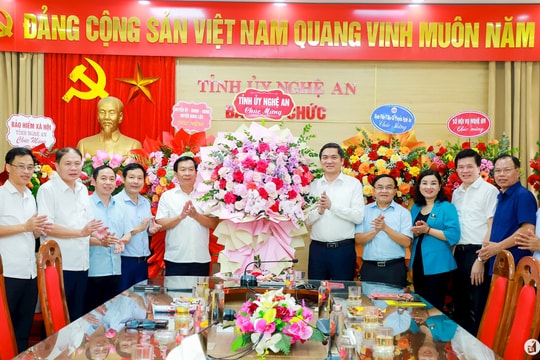
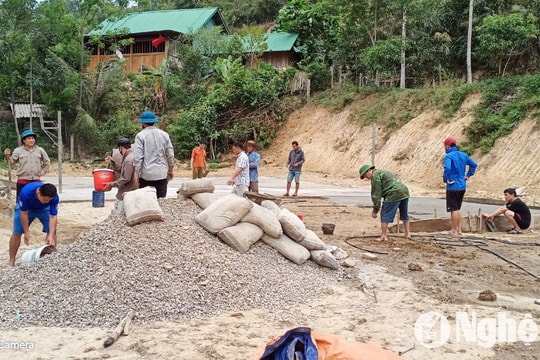
.jpg)
